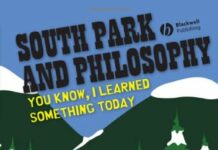
Ebook Info
- Published: 2015
- Number of pages: 246 pages
- Format: PDF
- File Size: 3.04 MB
- Authors: Robert Arp
Description
An introduction to the field of applied ontology with examples derived particularly from biomedicine, covering theoretical components, design practices, and practical applications.In the era of “big data,” science is increasingly information driven, and the potential for computers to store, manage, and integrate massive amounts of data has given rise to such new disciplinary fields as biomedical informatics. Applied ontology offers a strategy for the organization of scientific information in computer-tractable form, drawing on concepts not only from computer and information science but also from linguistics, logic, and philosophy. This book provides an introduction to the field of applied ontology that is of particular relevance to biomedicine, covering theoretical components of ontologies, best practices for ontology design, and examples of biomedical ontologies in use.After defining an ontology as a representation of the types of entities in a given domain, the book distinguishes between different kinds of ontologies and taxonomies, and shows how applied ontology draws on more traditional ideas from metaphysics. It presents the core features of the Basic Formal Ontology (BFO), now used by over one hundred ontology projects around the world, and offers examples of domain ontologies that utilize BFO. The book also describes Web Ontology Language (OWL), a common framework for Semantic Web technologies. Throughout, the book provides concrete recommendations for the design and construction of domain ontologies.
User’s Reviews
Reviews from Amazon users which were colected at the time this book was published on the website:
⭐Awesome book! I wrote it. Hah!
⭐One challenge of modeling in general, and ontology development in particular, is maintaining a shared understanding of the abstraction level of the discussion at hand among two or more people. Arp and Smith do a great job of keeping the reader clearly informed about the level of abstraction with a constant connection to concrete real-world examples. I found the work well formed. While one would expect that from experts in this field, it still struck me as a remarkable accomplishment. I highly recommend the book.
⭐Let me say that I did enjoy the book and would recommend it without reservation if you are trying to understand the Basic Formal Ontology (BFO). If you are a newcomer to the ontological world, I would not recommend. The first few chapters set the stage for understanding ontology but are, in my opinion, slightly convoluted and mix concepts that should be separated. Philosophical ontology is different than information science ontology for a good reason. While they are complementary, they are not equivalent. I would have liked to have seen more formal ontological framework building using FOPL. Within the description of BFO, it would have been nice to see formal DL syntax vs word statements. Overall, the book seemed to be an advertisement for BFO alone. While BFO has its uses, it is presumptuous to make a broad assertion that it can and should be used in all cases.
⭐A superb monograph that collects material previously available only from journal articles and expository videos. Tremendously helpful on a project of mine. I had access to a version through a university library, but I purchased the Kindle edition here because the formatting is much better for an eReader. Like other “mathy” books, there were some issues with the Kindle display of figures and tables, but this wasn’t severe enough to affect my ability to understand the material. The best single reference I am aware of for anyone interested in the BFO approach to computational ontologies.
⭐Very easy to read for the basics on BFO
⭐Excellent
⭐Complete. Easy to read. Consolidated well.
⭐Excellent BFO introduction.
⭐The best book I’ve read about ontologies in the sciences. An intrinsically difficult subject is treated in a well-written text that explains the issues very well. I can recommed this book whole-heartedly for those interested in the fundamentals of ontologies.
⭐Excelente introdução à ontologia para mestrandos e doutorandos, e pesquisadores que desejem aliar conhecimento científico e tecnologia.
⭐
Keywords
Free Download Building Ontologies with Basic Formal Ontology in PDF format
Building Ontologies with Basic Formal Ontology PDF Free Download
Download Building Ontologies with Basic Formal Ontology 2015 PDF Free
Building Ontologies with Basic Formal Ontology 2015 PDF Free Download
Download Building Ontologies with Basic Formal Ontology PDF
Free Download Ebook Building Ontologies with Basic Formal Ontology

